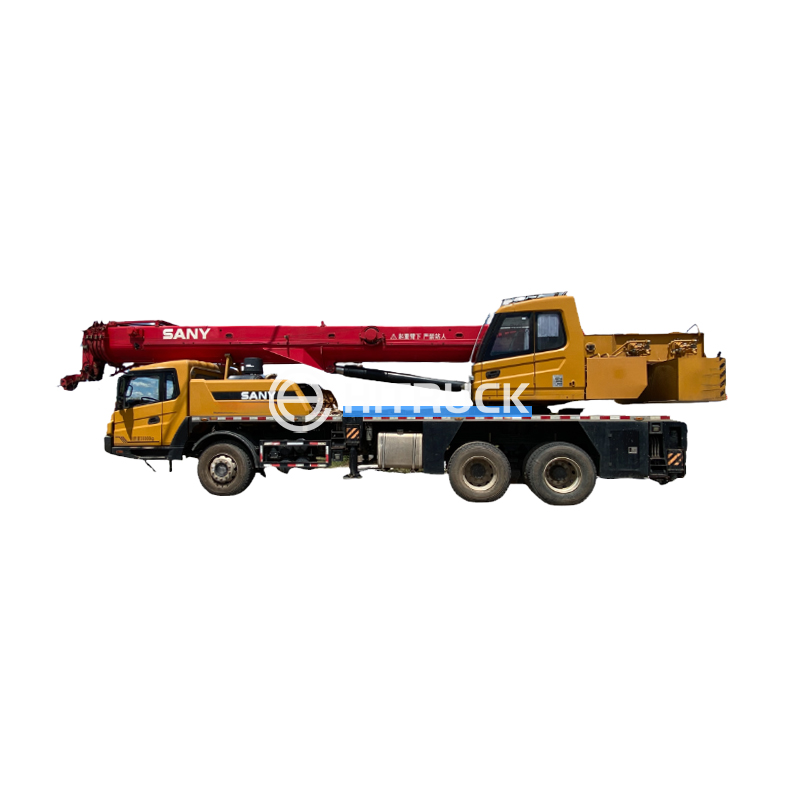This comprehensive guide helps you navigate the market for used cement mixer trucks, providing insights into factors to consider, potential pitfalls to avoid, and resources to find the right vehicle for your project. We explore various truck types, maintenance considerations, and pricing strategies, ensuring you make an informed decision.
Before embarking on your search for a used cement mixer truck, carefully evaluate your specific needs. Consider the scale of your projects – are you a small contractor handling occasional jobs, or a large construction firm with consistent high-volume demands? The size of the drum (cubic yards or meters), the truck's chassis (heavy-duty or lighter), and the overall payload capacity will all depend on this.
The market offers a variety of used cement mixer trucks, each with its own capabilities and specifications. Common types include: drum mixers, chute mixers, and specialized models for specific applications. Researching the differences between these types is crucial to finding a truck that matches your operational needs. Consider features like the drum's rotation mechanism (planetary vs. twin shaft), the discharge method (rear or side discharge), and the overall maneuverability of the truck in different terrain.
Thoroughly inspecting a potential purchase is paramount. Look for signs of wear and tear on the chassis, engine, and drum. Check the hydraulic system for leaks, inspect the tires for tread depth and condition, and ensure the mixing mechanism operates smoothly and efficiently. A professional mechanic's inspection is highly recommended before finalizing the purchase.
The price of a used cement mixer truck can vary greatly depending on its age, condition, and features. Research comparable models to understand market value. Negotiating effectively involves presenting your findings, highlighting any needed repairs, and strategically proposing a fair price that reflects the truck's actual condition. Be prepared to walk away if the deal isn't favorable.
Regular maintenance is key to extending the lifespan of your used cement mixer truck and preventing costly repairs. This includes regular oil changes, filter replacements, and inspections of critical components like the hydraulic system and drum. Adhering to a comprehensive maintenance schedule will significantly impact the truck's longevity and reliability. Refer to the manufacturer’s manual for specific guidelines.
Even with regular maintenance, occasional issues may arise. Familiarize yourself with common problems and their troubleshooting solutions. For more complex issues, consult a qualified mechanic specializing in heavy-duty vehicles. Early detection and timely repairs can prevent minor problems from escalating into major expenses.
Numerous online marketplaces and dealerships specialize in selling used cement mixer trucks. Research reputable dealers with positive customer reviews and a wide selection of trucks to find a suitable option. Consider factors like their warranty offerings and customer support. Check out sites like Hitruckmall for a wide variety of options.
To make your search for a used cement mixer truck more efficient, refine your search criteria based on your specific needs. Use relevant keywords, such as the desired truck size, age, and features. Compare multiple options carefully, paying attention to price, condition, and overall value. Be patient and persistent—finding the right truck might take time, but the investment will pay off in the long run.
| Feature | Option A | Option B |
|---|---|---|
| Year | 2018 | 2021 |
| Engine | Cummins | Detroit |
| Drum Capacity | 8 cubic yards | 10 cubic yards |
| Mileage | 75,000 | 40,000 |
Note: This is a sample comparison; actual specifications will vary based on available trucks.












